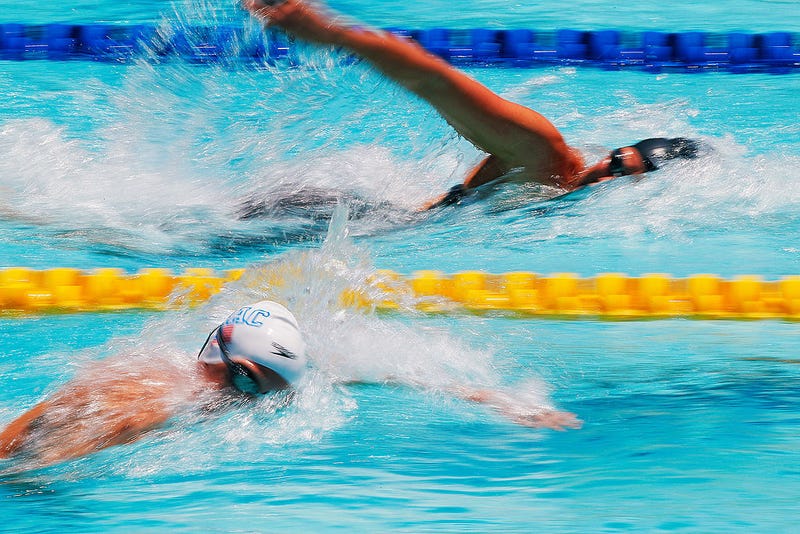
SAN LEANDRO, Calif. (KCBS RADIO) – Recent sports scandals involving successful coaches accused of bullying and abuse are highlighting the conflict between old style authoritarian coaching and a new generation of self aware athletes.
For more, stream KCBS Radio now.
UC Berkeley's celebrated women's swim coach was put on leave after explosive accusations of decades of misconduct. University of San Francisco is being sued this summer over allegations of abuse by the women's basketball head coach.
But does this mean athletes are "going soft"?
If nurtured properly the love of sport can last a lifetime. It did for Talli Pitcher, a 20-year coach for the Pleasant Hill Dolfins who swam for Cal in the 1980s.
"Going away for college, you're there for the first time and there's a lot that happens. You're supposed to be the perfect body and the perfect — you know there's so much pressure — perfect student, perfect, perfect, perfect. Well nobody's perfect and why are they expecting them to be?," she asked. "They're expecting themselves to be, so it takes a lot to become a (Division 1) athlete and you don't want to fail."
Instead of addressing needs, many collegiate athletes suck it up when they're mentally and physically spent.
"Nobody was going to push us around and make us feel like we were damaged," Pitcher said. "I think a lot more kids these days feel fragile or their parents jump in before they're able to figure out how to cope. They don't want their kids to have to suffer through anything so they solve their problems for them before they figure out how they can do that themselves."
Eighteen-year-old Molly Ostrowski, who grew up swimming for Pitcher and now plays water polo for Arizona State, shared a slightly different perspective. "Getting therapy today, it's a very normal thing. Just letting them know it's okay to get help, you don't have to do it by yourself," she told KCBS Radio.
Throughout her time as a dedicated athlete, she said she's even felt pushback for prioritizing emotional and mental health from peers.
"It's hard watching your teammates struggle when you can tell something's not quite right and letting them know that it's okay to take a break, a day off, or get help with a sports psychologist or something like that," she said.
San Jose State Sport Sociologist Dr. Jessica Chin studies hazing and abuse in sports. She also officiates NCAA women's lacrosse. "I'm here to tell you that athletes these days are tough as nails, they're stronger than ever," she said. "They're not these oversensitive, weak children." Which is why we need to reboot antiquated thinking.
Jason Sacks is president of the national non profit group, Positive Coaching Alliance, which was founded in the Bay Area. He said a perfect example of this toxic attitude was the criticism gymnast Simone Biles faced after she withdrew from events at the Tokyo Olympics due to mental health. "The conversations were around, well if it was a physical injury people would be like 'oh she broke her leg, she can't compete, of course that's okay,' but since it was mental, there was this stigma around it," he explained.
Sacks likened accepting mental health as a priority in sports to a coach changing their strategy on the field. "People are evolving. It's the same way with how we're communicating with the athletes. What worked 20 years ago, what was acceptable 20 years ago, isn't acceptable now," he emphasized.
Looking to the future, what's the responsibility of an athletic department, a university or a team organization for ensuring that coaches don't step over that line, no matter what their winning records say?
DOWNLOAD the Audacy App
SIGN UP and follow KCBS Radio
Facebook | Twitter | Instagram

